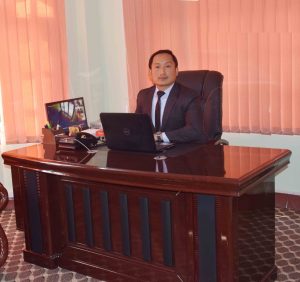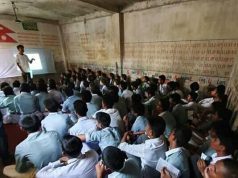Today, as we move around the rural areas and villages of Nepal – it is staggering to see how these places are mostly filled with females more than males. The major cause behind it being international migration. In the fiscal years 2015/16 and 2016/17, the Department for Foreign Employment issued 786,564 work permits for foreign employment to over one hundred destination countries. (Government of Nepal, Ministry of Labour and Employment, 2018)
As more and more people are moving around for foreign employment, it has become imperative for the country to take a myopic view on the backend of how all of this foreign employment is happening.
While analyzing foreign employment trends, we tried to understand the perspectives of different stakeholders who have been working on this sector to ensure foreign employment harnesses the development potential it can to reap on better results. Below provided are some insights from the various stakeholders who have a constant watch on this sector.
- The first effort always has to be to attract the young minds of the country to work for the country:
The country is going through major reconstruction now especially after the earthquake hit the country in April of 2015. Also, in the present, a lot of construction works seem to be underway in the country as the country looks forward to building new international airports, and the road infrastructure of the country is also being improved.
As stated by Mr. Nirmal Dahal, CEO of Sagarmatha Pencil, who returned back from Kuwait leaving his foreign employment and began his own venture here in Nepal, “The country’s first efforts should always be diverted towards stopping labor migration by providing attractive employment opportunities in the home country itself. Entrepreneurship should be promoted equally as this is a way of creating newer job opportunities and retaining young minds in their country.”

CEO of Sagarmatha Pencil
Mr. Nirmal Dahal is a true example of how foreign employment need not be a deteriorating phenomenon for the country. When people from the country go outside and work, they get a lot of exposure and knowledge which can be applied back in their own country to create better opportunities. Mr. Dahal worked in the stationery department of a reputed bank in Kuwait and when he came across some pencils made from recycled paper, it enticed him so much that he came back to his own home country, and generated a business model around it.
This proves how labor migration can work wonders for the country if it can create knowledge leaks and if the people of the country can be brought back to the country after a certain duration of exposure in the international arena.
- Better flow of information and matching of employment opportunities is a must:

Mr. Paul Norton,
Chief of Mission at IOM Nepal
There are two major modes of migration that people can adopt while seeking foreign employment – they can apply individually or they can apply through a recruitment agency.
Majority of the labor migration that happens in the country now happens through a recruitment agency. In the fiscal year 2016/17, 92.44% of the migrants applied through a recruitment agency. (Government of Nepal, Ministry of Labour and Employment, 2018)
This trend of using a recruitment agency has further increased after the year 2012 as the government issued a directive in 2012 on the labor migration happening through individual applications. According to the directive, the government could gather more information on the jobs and the sponsors involved in the destination countries which would help them better match the employee with the employers and safeguard the migrant workers.
While the directive was issued in order to promote more safeguarded migration, it didn’t have a significant impact. While in the fiscal year 2011/12, 32.40% of migrant workers did use the individual application mode, the number rapidly declined to 12.25% in the year 2012/13. (Government of Nepal, Ministry of Labour and Employment, 2018)
If the recruitment agencies work ethically, then the use of such recruitment agencies can prove to be beneficial for the economy, as it allows privatization of a lucrative sector. However, today many of such agencies, indulge in unscrupulous activities by giving false hopes to the laborers who belong from the poor background by making fake promises of how they can become richer if they work abroad.
Hence, proper information flow is required between the migrant workers and foreign employers so that the migrant workers have full information before they go abroad and they in no way feel exploited or harmed. To ensure that there is proper information flow between the migrant workers and the foreign employers, International Organization for Migration is now taking substantial measures.
Mr. Paul I. Norton, Chief of Mission of the IOM – UN Migration Agency in Nepal said, “We initiated the concept of Migrant Resource Centers (MRCs) back in 2010 which has now grown into around 45 MRCs covering several districts across the country and with the federalism in place now, we expect this number to grow further.”
He added, “The concept of migrant resource centers was developed with the aim to provide the aspirant migrant workers with accurate and authentic information they need to make ‘informed decisions’, to help prevent them from being exploited by unscrupulous agents and human traffickers, and to discourage them from choosing the irregular route. IOM is now working with the government – bringing the private sector and other stakeholders together – in building the capacity of MRCs which act as a One-Stop-Shop for information and advice on safe channels of migration.”
- Continuous efforts to reduce the burden of migration costs on prospective employees: A measure that can backfire!

Mr. Ram Belbase,
Advisor of EPAN Nepal
The migrant workers are also often compelled to paying hefty prices for migrating abroad. There have been ongoing issues about how the employers should bear the migration costs making the departure hassle free for aspiring workers.
Aligning with the ongoing concern of making departure free of cost, the Government of Nepal signed a labor agreement with Malaysia which states that the employers will have to bear the costs of the recruitment process along with the two-way flights.
Earlier, the Nepalese youths seeking jobs in Malaysia had been paying a minimum of Rs.18,000 as miscellaneous expenses accounted as the health checkup fees, visa processing fees, immigration security, and thumb printing. (Khadka Rudra, 2018)
Adding to such costs, there are many recruitment agents that demand additional money from such migrants.
So, this negotiation between the Government of Nepal and the Malaysian government will be lifting a major burden from the prospective Nepalese migrant workers to Malaysia.
The government of Nepal announced free visa-free ticket scheme in 2015 thereby stating that the employers have to bear the expenses associated with the visa and round trip air ticket.
However, Mr. Ram Belbase, Advisor of EPAN Nepal and Former member of NRNA ICC (Non – Residential Nepali Association) stated, “This step taken by the government is done in accordance with the short term vision. We often tend to forget the fact that there is nothing called free lunch. The employers gave down to the scheme of ‘Free Visa, Free ticket’ and used this scheme to benefit them. They now pay lower wages to the laborers of Nepal as the hidden cost for free visa and a free ticket. Hence, the scheme of free visa and free ticket which might seem to be beneficial for the laborers in the short term actually hinders the growth opportunities and additional money-making opportunities of the laborers in the long run.”
Thereby, it is imperative that whatever measures the government takes for labor migration in Nepal, they have to be in alignment with the long term vision of making the life of migrant workers easier and giving them better opportunities rather than taking any surficial steps towards the migration process.
- Safety approach in the migration process rather than the control approach:
Given that the cases of violence against domestic workers are woeful in abroad, the Government of Nepal placed a ban on the women from migrating for domestic work. This ban was placed in early 2017.
However, this ban has done more harm than good to the country’s migrants especially female migrants. As now, the women seek for underground mediums to migrate abroad as domestic workers. Our open borders with India has given these women a chance to reach abroad through India.
Not only has this ban, given rise to the underground economy, but it also has scared the women who are already working abroad to come back to their home country. The women who are satisfactorily working abroad seek not to come back to their own country because it ignites in them the fear that ‘What if they will not be allowed to go back again?’
Adding insult to injury, the government is not being able to protect their female citizens working abroad who are being harassed as they are passing through the black market and Nepal Embassy doesn’t have information about them or legal records about them at all.
Mr. Kumud Khanal, Founder President of EPAN (Ethical Practitioners Association of Nepal) stated “The government is majorly working on the control system rather than the safety system.”

He further added, “Instead of having a blanket ban on out-migrating of women as domestic workers, the government should orient these women about the possible threats that they can have as they go to work as domestic workers. It’s their libertarian choice that they would want to migrate abroad. When a blanket ban is imposed it only encourages them to find illegal mediums to do what they want to do.”
In fact, Mr. Khanal stated, “Any person who falls under the criteria of not having completed SLC when goes in the passport office to get a passport, should be oriented about abroad migration, the working conditions therein which makes it crystal clear about how labor migration and working in abroad can look like. These young minds are often incapable of making decisions for themselves and hence they are usually attracted by the false hopes given by fake caretakers and unethical agencies and when they migrate they see a reverse condition. Hence, an orientation to such young minds is imperative.”
Also, another major safety measure that the government should take is becoming specific rather than vague with its labor agreements with other nations. Today, when we talk about ethical recruitment, various components come under it like cost, living conditions of the migrant workers, collaboration and co-operation between the employers and employees.
Mr. Khanal stated, “The reason why migration is so unclean especially in case of Nepal is that when it comes to employer-employee agreements, the terms used are vague ones like acceptable living conditions, acceptable accommodation, etc. Here the major problem is that the definition of acceptable might differ from person to person. People manipulate and modify the meaning of acceptable such that they maximize their own profits while exploiting the other communities associated with them.”
Hence, the government should move from a control measure to a safety measure which means that the government should go to the root cause of the problems and solve them rather than looking at the surficial problem and imposing stringent regulations on it.
- High death rates among the labor migrants showing their lack of awareness about the situation:
A total of 5892 deaths have occurred in the foreign soil of the Nepalese citizens in the past nine years. (Mandal, 2018)
In majority of the cases, the cause for death is stated to be either a natural death or it is associated with cardiac arrests.
Mr. Dhruba Raj Rai, Chairman of Global Welfare H.R. Solution Pvt. Ltd. stated, “We can’t blame the employers for the death of the labor migrants. In many cases, the ignorance of migrants becomes the major cause behind their death.”

Chairman of Global Welfare H.R. Solution
For instance, he expressed “They don’t well orient themselves with the weather conditions of the places they go to work for. They work in extremely hot weather and when they come back after work, they turn on the AC and immediately expose their body to a chilled environment which tends to affect their health and as a result of which incidents like cardiac arrests take place. Also, extreme liquor consumption is another association with the death of these migrants. They tend to buy the low-quality liquor and consume it excessively ultimately leading to reactions on the body leading to death.”
The other major cause of such cardiac arrests and in some cases suicides by the migrant workers could be associated with the stress levels and thoughts that migrants expose themselves to.
As clarified by Mr. Rai, “The migrant workers usually go abroad with huge aspirations and dreams about becoming big but when they actually start working abroad, they tend to encounter major changes between their expectations and the reality because of which they tend to stress out and immerse in negative emotions. Many times, the burden of repayment debt that they take to go abroad bothers them and as a result of high levels of stress they harm their body which leads to death and suicides in many cases.”
- Technology can touch the lives of labor migrants and make their lives easier:
The mobile penetration rate in Nepal in terms of the number of SIM connections has passed 100 percent which proves that majority of the Nepalese have a mobile device on their hands and amongst them too, the device ownership is higher among young people who form the major demographics of abroad workers.
Keeping this in mind, The Asia Foundation and its partner organizations have been developing and managing an app called ‘ShuvaYatra’, which is designed to help all the current, potential and returnee migrants make better decisions through transparent information and facilitation.
According to the representatives of The Asia Foundation, “The platform is used by tens of thousands of Nepalese workers every week and offers articles, videos, and podcasts about migration and financial management. Also, an audio program called ‘Sunaulo Mauka’ is now broadcasted through more than 60 stations worldwide. Along with these, new mobile applications created by the Government of Nepal are also being introduced in the market.”
With such applications that can provide information in the fingertips to migrant workers all the time irrespective of their location, the risks associated with labor migration will be mitigated and the plague that has currently affected the labor migration market will dissolve and fade in the days to come.
Increased labor migration is a reality of Nepal and just like everything has its own pros and cons, this aspect has its downsides too. To ensure that labor migration works in the best benefit of the country, it is imperative that the migrants need to be made aware, the recruitment agencies need to follow ethical recruitment practices and the government should make favorable negotiations and regulations with other countries on the matter. A lot has been done and a lot needs to be done to ensure Nepalese citizens are happy, safe and productive no matter where they decide to reside.






